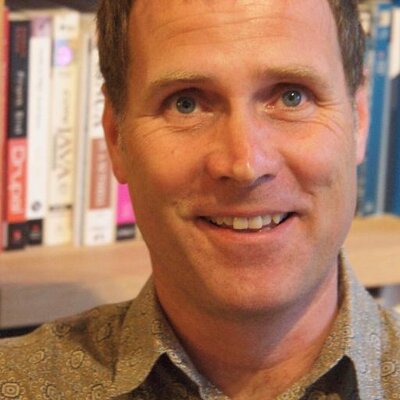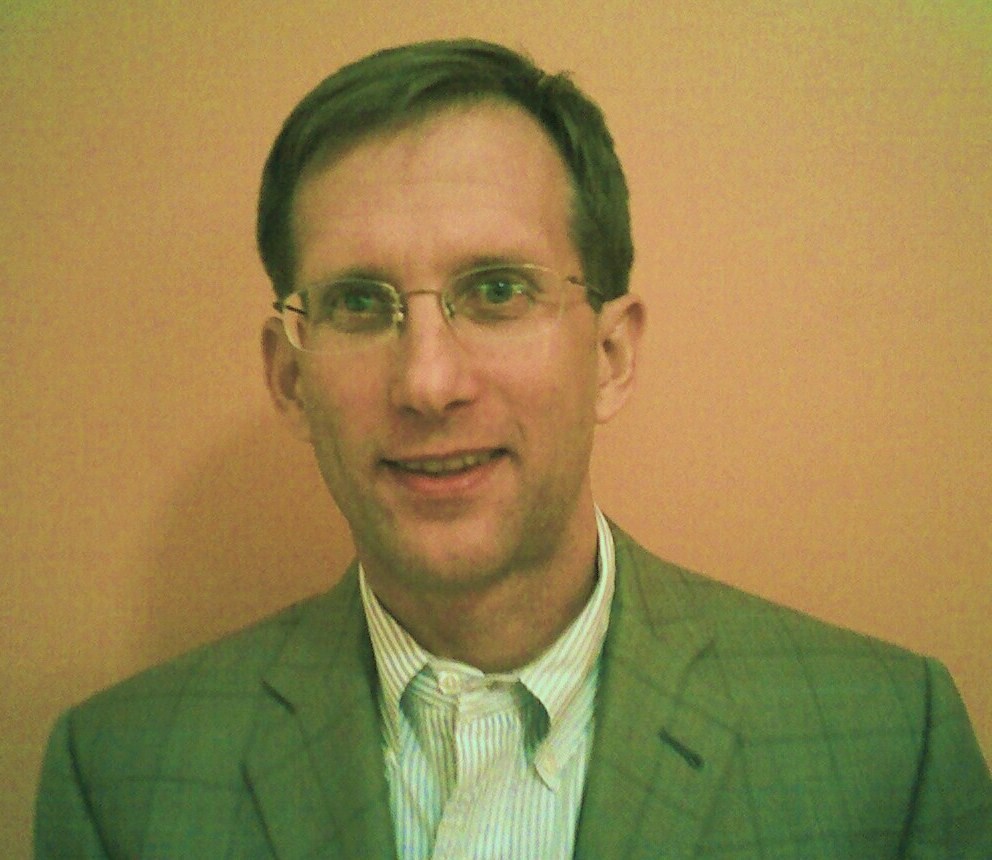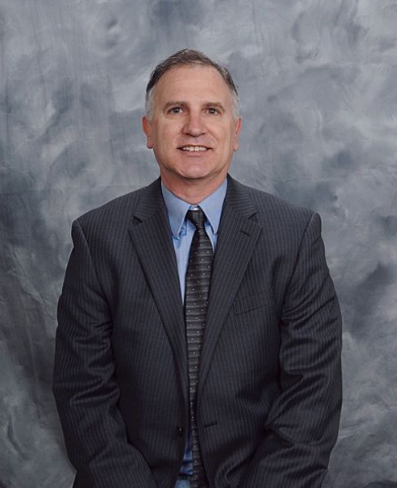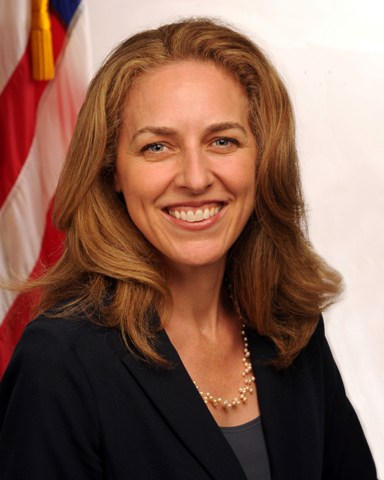
Feature Articles
For UNC Scientists, Open Source is the Way Forward
By Bryan Behrenshausen | August 27, 2015

Fibrodysplasia ossificans progressiva—more commonly called stone man's syndrome—is the result of a rare mutation, an anomaly in the way certain enzymes called kinases spur protein synthesis. Someone with stone man's syndrome has hyperactive kinases that catalyze more bone production than they should. The body's natural repair mechanisms malfunction, and they replace soft tissue with deposits of solid bone. Joints freeze. The body becomes a prison. But scientists know they can manipulate those kinases to combat the disease. And chemical biologists at the University of North Carolina are leading an open source effort to unlock the secrets of kinase activity—secrets they say could pioneer a new generation of drug discovery...
Halamka's Report on the August 2015 HIT Standards Committee
By John D. Halamka, MD | September 1, 2015

The August 2015 HIT Standards Committee marked the beginning of an important transition. As work on Meaningful Use winds down, it is being replaced with work on Obama’s signature precision medicine initiative and planning for the 2016 Interoperability Standards Advisory. At the same time, many of the longstanding HIT Standards Committee members of have reached their term limits and are being replaced by new experts. I will leave the group in January.
Open Access to a High-Quality, Impartial, Point-of-Care Medical Summary Would Save Lives: Why Does It Not Exist?
By James Heilman | August 26, 2015
 The success of PubMed Central and the many open access journals in making medical knowledge openly available to researchers has been immense. Nothing similar has yet been done for clinicians. Our immediate goal should be to provide accessible, high-quality medical information that is easily searchable and usable at the point of care (Box 1). Using for-profit POC medical summaries as a yardstick, this would involve the putting together of 5,000 to 10,000 overview articles. To have global impact, this content would need to be available in languages comprehensible by the majority of the world’s health care providers. It would need to be updated on a regular basis and available in multiple formats, including on the web, as e-books, and in spoken form. It would also need to be freely readable, including without data charges in the developing world.
The success of PubMed Central and the many open access journals in making medical knowledge openly available to researchers has been immense. Nothing similar has yet been done for clinicians. Our immediate goal should be to provide accessible, high-quality medical information that is easily searchable and usable at the point of care (Box 1). Using for-profit POC medical summaries as a yardstick, this would involve the putting together of 5,000 to 10,000 overview articles. To have global impact, this content would need to be available in languages comprehensible by the majority of the world’s health care providers. It would need to be updated on a regular basis and available in multiple formats, including on the web, as e-books, and in spoken form. It would also need to be freely readable, including without data charges in the developing world.
Open Source for Products in Four Rules (and 10 Slides)
By Stephen R. Walli | August 24, 2015
 There are four rules to understand when building products out of open source software. A product team (engineering, product management, marketing) needs to understand these rules to participate best in an open source project community and deliver products and services to their customers at the same time. These four rules are the start of all other discussions about the open source product space...
There are four rules to understand when building products out of open source software. A product team (engineering, product management, marketing) needs to understand these rules to participate best in an open source project community and deliver products and services to their customers at the same time. These four rules are the start of all other discussions about the open source product space...
Halamka Does FY16 Strategic Planning
By John D. Halamka, MD | August 26, 2015
 As we gather together stakeholders for strategic planning of next year’s priorities, what are we hearing and what we have learned? 1. Clinicians are overwhelmed by the current demands of Meaningful Use, hundreds of quality measures, population health, care management, and patient/family engagement. All of these are good ideas individually but the sum of their requirements overwhelms providers. In an era when we’re trying to control costs, adding more clinical FTEs to spread the work over a large team is not possible. The end result is that providers spend hours each night catching up on the day’s documentation and are demanding better tools/automation to reduce their strain.
As we gather together stakeholders for strategic planning of next year’s priorities, what are we hearing and what we have learned? 1. Clinicians are overwhelmed by the current demands of Meaningful Use, hundreds of quality measures, population health, care management, and patient/family engagement. All of these are good ideas individually but the sum of their requirements overwhelms providers. In an era when we’re trying to control costs, adding more clinical FTEs to spread the work over a large team is not possible. The end result is that providers spend hours each night catching up on the day’s documentation and are demanding better tools/automation to reduce their strain.
Open access is a development issue – the status quo needs to be challenged
By Denise Rosemary Nicholson, University of the Witwatersrand | August 29, 2015
 South Africa is doing some amazing research but cannot share it globally because of restrictive copyright laws or unreasonable policies and embargo periods set by publishers. South African authors cannot become known and cited if their works are locked up behind expensive paywalls, accessible only to a limited audience. South African students and researchers also need access to the best international and local up-to-date journals, books and other research to be able to contribute new knowledge in their fields. This is the reason open access is so crucial for South Africa and other developing countries.
South Africa is doing some amazing research but cannot share it globally because of restrictive copyright laws or unreasonable policies and embargo periods set by publishers. South African authors cannot become known and cited if their works are locked up behind expensive paywalls, accessible only to a limited audience. South African students and researchers also need access to the best international and local up-to-date journals, books and other research to be able to contribute new knowledge in their fields. This is the reason open access is so crucial for South Africa and other developing countries.
Greek Government Moving to Open Source, Open Data
By Gijs Hillenius | August 18, 2015
 The Greek government wants the country’s public administrations to transition to free and open source software, open standards and open data. The Ministry of Economy, Infrastructure, Marine and Tourism has asked the Greek free and open source software society (Gfoss) to help organize workshops and conferences, train public administrations and propose research and development projects. The objective of the transition to open technologies is to strengthen Greece’s economy.
The Greek government wants the country’s public administrations to transition to free and open source software, open standards and open data. The Ministry of Economy, Infrastructure, Marine and Tourism has asked the Greek free and open source software society (Gfoss) to help organize workshops and conferences, train public administrations and propose research and development projects. The objective of the transition to open technologies is to strengthen Greece’s economy.
What Health Care Needs Are Some Zombies
By Kim Bellard | August 18, 2015
 Finally, some good health care news: according to Accenture, half of digital health start-ups are going to fail within two years. No, really: that's the good news. Accenture projects that funding for digital start-ups is going to boom over the next few years, reaching $6.5b annually by 2017. Their analysis categorized four key areas of funding from 2008 - 2013: infrastructure ($2.9b), treatment ($2.6b), engagement ($2.6b), and diagnosis ($2.1b). They stress that the start-ups that will succeed will do so by combining capabilities across the four areas, such as by use of integrated Social, Mobile, Analytics, Cloud and Sensor technologies ("SMACS"). This boom shouldn't come as much of a surprise...
Finally, some good health care news: according to Accenture, half of digital health start-ups are going to fail within two years. No, really: that's the good news. Accenture projects that funding for digital start-ups is going to boom over the next few years, reaching $6.5b annually by 2017. Their analysis categorized four key areas of funding from 2008 - 2013: infrastructure ($2.9b), treatment ($2.6b), engagement ($2.6b), and diagnosis ($2.1b). They stress that the start-ups that will succeed will do so by combining capabilities across the four areas, such as by use of integrated Social, Mobile, Analytics, Cloud and Sensor technologies ("SMACS"). This boom shouldn't come as much of a surprise...
Crash Test Dummies and Electonic Health Records
By Bennett Lauber | August 17, 2015
 EHR vendors are quick to say that the upcoming stage 3 Meaningful Use requirements are too burdensome, that they are too difficult to complete, and they are not necessary. (see this article for example). Many EHR vendors would say let market forces take over and the Health IT industry will heal itself. The big business interests of the Healthcare industry may cry wolf (and lobby hard) against the meaningful use program and its significant enhancements to the usability program because they don’t want to spend the extra time and money to provide a healthcare system that truly follows a safety-enhanced design philosophy.
EHR vendors are quick to say that the upcoming stage 3 Meaningful Use requirements are too burdensome, that they are too difficult to complete, and they are not necessary. (see this article for example). Many EHR vendors would say let market forces take over and the Health IT industry will heal itself. The big business interests of the Healthcare industry may cry wolf (and lobby hard) against the meaningful use program and its significant enhancements to the usability program because they don’t want to spend the extra time and money to provide a healthcare system that truly follows a safety-enhanced design philosophy.
HHS CTO Susannah Fox Lays Out Her Communications Priorities
By Susannah Fox | August 18, 2015
 The public conversation about health and health care can be fast-paced and free-wheeling — words not often associated with the federal government. While we are not in control of the conversation, government workers can still listen and contribute to it. We can seed it with facts and ideas. We can respond to questions. We can be human, even as we maintain a thoughtful and focused public presence. All by leveraging the power of online communications. Parallels in other industries can guide us...
The public conversation about health and health care can be fast-paced and free-wheeling — words not often associated with the federal government. While we are not in control of the conversation, government workers can still listen and contribute to it. We can seed it with facts and ideas. We can respond to questions. We can be human, even as we maintain a thoughtful and focused public presence. All by leveraging the power of online communications. Parallels in other industries can guide us...
Making Computers Accessible to Millions of Individuals with Disabilities
By Spencer Hunley | August 14, 2015
 According to the latest numbers from the World Health Organization, over a billion people in the world live with some sort of disability. Addressing the various accommodations, abilities, and disabilities of the world's largest minority may seem like a daunting task for developers of all stripes, but Colin Fulton is up for it. He wants to change the way accessibility is viewed and perceived in the Linux and open source communities. I was lucky enough to get a chance to interview Colin and find out more about his upcoming LinuxCon talk, what he hopes his audience will gain from attending, and his fresh, diverse viewpoint on disability—as well as why accessibility is actually an integral part of the open source community.
According to the latest numbers from the World Health Organization, over a billion people in the world live with some sort of disability. Addressing the various accommodations, abilities, and disabilities of the world's largest minority may seem like a daunting task for developers of all stripes, but Colin Fulton is up for it. He wants to change the way accessibility is viewed and perceived in the Linux and open source communities. I was lucky enough to get a chance to interview Colin and find out more about his upcoming LinuxCon talk, what he hopes his audience will gain from attending, and his fresh, diverse viewpoint on disability—as well as why accessibility is actually an integral part of the open source community.
Open Data Leaders in Government Finally Have a Support Network – Each Other
By Paul Stone | September 8, 2016
 New Zealand’s Open Government Data Programme Leader, Paul Stone, reflects on his time at the Open Data Leaders Network: what he learnt, who he met and how peer-learning has helped him find better solutions to problems. There are support networks for many professions that people can get involved with or lean on for support. Lawyers, accountants, IT, information management, policy making – you name it, there will be a local network out there for you to join...
New Zealand’s Open Government Data Programme Leader, Paul Stone, reflects on his time at the Open Data Leaders Network: what he learnt, who he met and how peer-learning has helped him find better solutions to problems. There are support networks for many professions that people can get involved with or lean on for support. Lawyers, accountants, IT, information management, policy making – you name it, there will be a local network out there for you to join...
What If It Happened Again? What We Need To Do To Prepare For A Nuclear Event
By Dr. Cham Dallas | September 11, 2015
 As we observe the 70th anniversary of the bombings of Hiroshima and Nagasaki, it may seem like the threat from nuclear weapons has receded. But it hasn’t; the threat is actually increasing steadily. This is difficult to face for many people, and this denial also means that we are not very well-prepared for nuclear and radiological events. I’ve been studying the effects of nuclear events – from detonations to accidents – for over 30 years. I’ve been involved in research, teaching and humanitarian efforts in multiple expeditions to Chernobyl- and Fukushima-contaminated areas. Now I am involved in the proposal for the formation of the Nuclear Global Health Workforce.
As we observe the 70th anniversary of the bombings of Hiroshima and Nagasaki, it may seem like the threat from nuclear weapons has receded. But it hasn’t; the threat is actually increasing steadily. This is difficult to face for many people, and this denial also means that we are not very well-prepared for nuclear and radiological events. I’ve been studying the effects of nuclear events – from detonations to accidents – for over 30 years. I’ve been involved in research, teaching and humanitarian efforts in multiple expeditions to Chernobyl- and Fukushima-contaminated areas. Now I am involved in the proposal for the formation of the Nuclear Global Health Workforce.
India Adopts A Comprehensive Open Source Policy
By Mark Bohannon | August 9, 2015
 The Government of India (GOI) has adopted a comprehensive and supportive open source policy. It builds on their earlier efforts to adopt open standards for procurement. As we've seen in other regions, the adoption of such policies often brings out concerns from some quarters who want to spread 'fear and doubt' about the policy. So, what are the facts about the policy, and how does it fit into India's broader economic development strategy? Read More »
The Government of India (GOI) has adopted a comprehensive and supportive open source policy. It builds on their earlier efforts to adopt open standards for procurement. As we've seen in other regions, the adoption of such policies often brings out concerns from some quarters who want to spread 'fear and doubt' about the policy. So, what are the facts about the policy, and how does it fit into India's broader economic development strategy? Read More »
Nine types of Usability Problems w/EHRs
By Bennett Lauber | August 6, 2015
 There is no shortage of complaints about the usability of Electronic Health Record systems (EHRs). More and more evidence is emerging regarding the lack of EHR usability. Speaking at the 2013 Healthcare Information and Management Systems Society (HIMSS) Conference & Exhibition, Michael S. Barr, MD, MBA, FACP, of the National Committee for Quality Assurance (NCQA) warned that: “Satisfaction and usability ratings for certified electronic health records (EHRs) have decreased since 2010 among clinicians across a range of indicators.” Barr’s presentation at HIMSS focused on “ the need for the Meaningful Use program and EHR manufacturers to focus on improving EHR features and usability.”
There is no shortage of complaints about the usability of Electronic Health Record systems (EHRs). More and more evidence is emerging regarding the lack of EHR usability. Speaking at the 2013 Healthcare Information and Management Systems Society (HIMSS) Conference & Exhibition, Michael S. Barr, MD, MBA, FACP, of the National Committee for Quality Assurance (NCQA) warned that: “Satisfaction and usability ratings for certified electronic health records (EHRs) have decreased since 2010 among clinicians across a range of indicators.” Barr’s presentation at HIMSS focused on “ the need for the Meaningful Use program and EHR manufacturers to focus on improving EHR features and usability.”